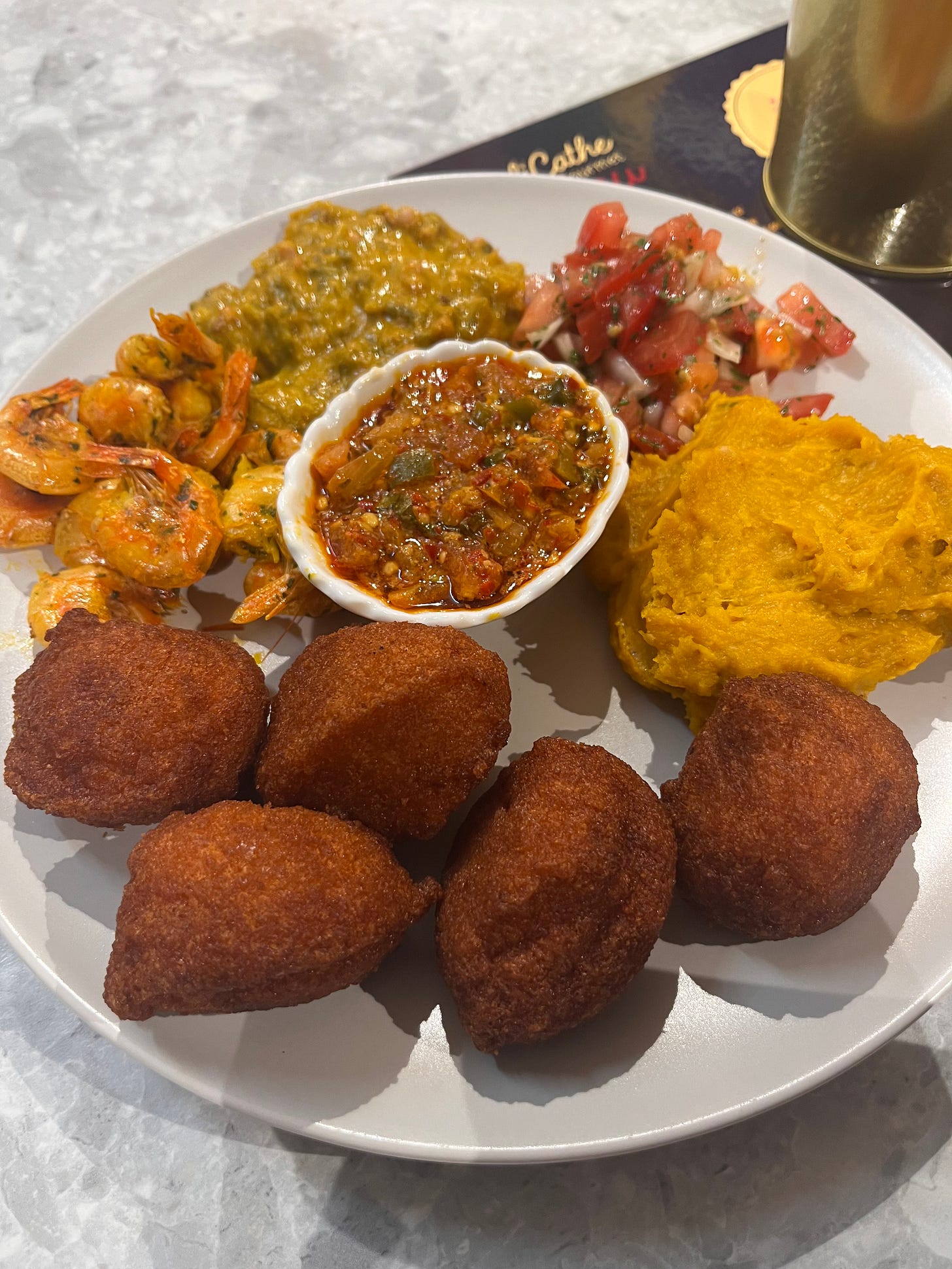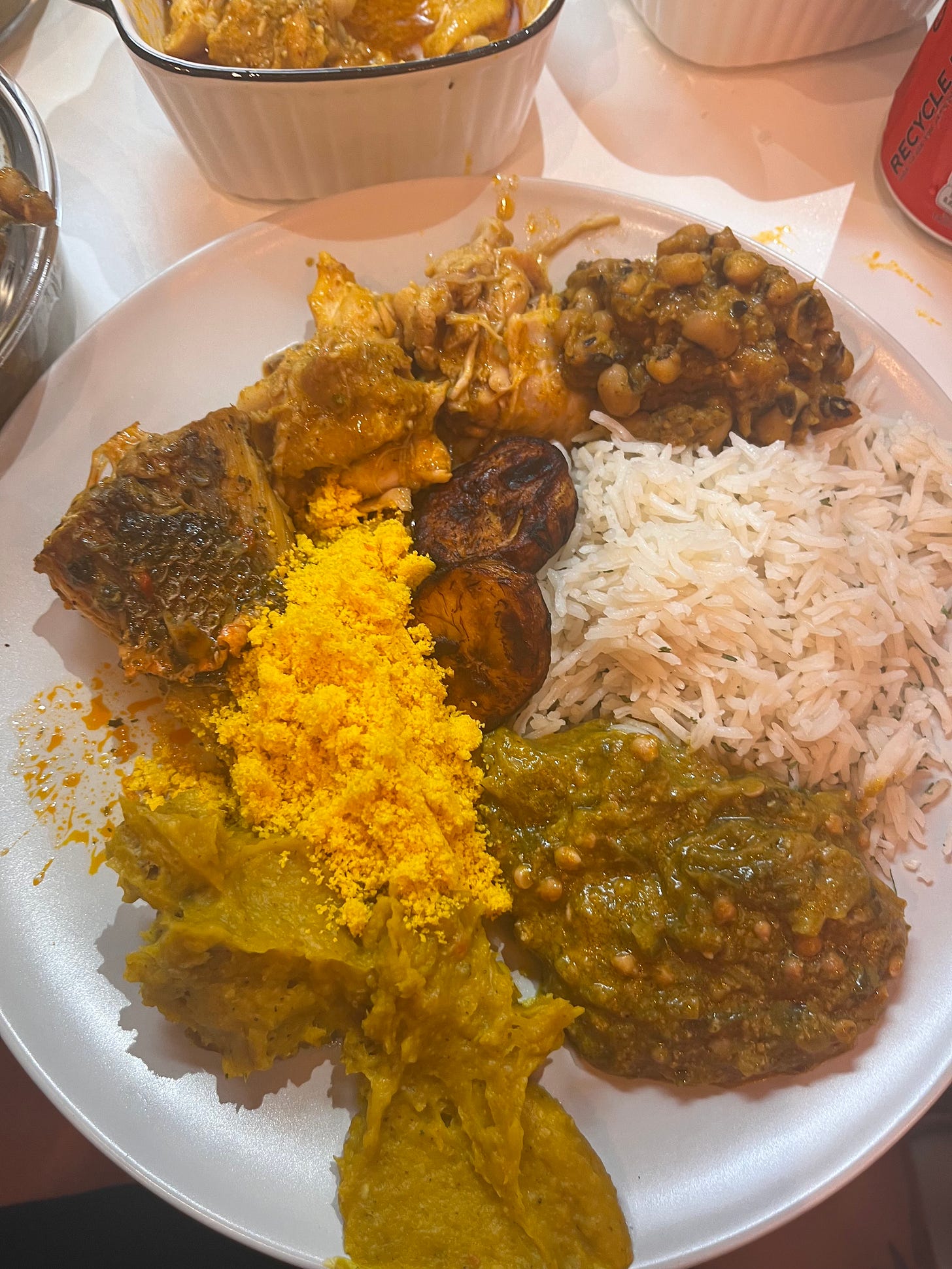Where to (finally) eat fricassé in London this weekend
A Six of One mom-and-pop special, by Vitória Croda, Naseer Chia, Ruby Atkin, Sejal Sukhadwala, Gavin Cleaver, and Angela Hui.
Vittles Issue 1 is now back online! We have sold 95 percent of the print run and we will not reprint, so these are the last copies available. We’d recommend ordering now if you’d like to get one before we move onto Issue 2 later this year.
Six of One - Mom-and-Pop Special
One of the most interesting things about Zohran Mamdani’s recent mayoral campaign in New York has been his focus on small businesses, or to give them their over-cutesy American name, mom-and-pop stores. This has meant talking about, lauding, and visiting small restaurants run by first- or second-generation New Yorkers, often serving communities in the outer boroughs — places like AbuQir, the brilliant Egyptian seafood specialist in Astoria, or the city’s Yemeni-owned bodegas. What I find impressive about this focus is that it has never once slipped into transactional notions of these places being worthwhile because they service a consuming-class of New Yorkers, or the liberal idea that ‘immigration is good because the food is better’. Instead, it has tapped into something more universal: a shared sense of civic pride amid a far-right narrative of declinism. Far from symbols of a changing and incomprehensible city, this framing rightly positions these businesses, with their messy, human interactions and specialisms, as the true inheritors of the city’s spirit.
This week’s Six of One is all about London’s own small food businesses and the people and families who own them. It includes Wassila and Hamza who are on a mother-and-son mission to bring Tunisian fricassé to London, Jaime and Cecilia who run one of the City’s most chaotic sandwich shops, Mochtar and Zaineb whose small restaurant serving Johor laksa has the spirit of a warung, Mama Vic whose mixture of West African and Caribbean food is deservedly finding its audience, and two sisters (and their husbands) running a Gujarati snack shop out of an unlikely grocery store.
We’re also delighted to publish the first piece of writing from our second round of mentorships, by Vitória Croda. Vitória moved to London from Salvador in Brazil in 2021; in her mentorship application she wrote that she wanted to ‘write about the community that raised me and how the London food scene brought me closer to them’. Salvador, like New Orleans and Atlanta, is one of the great African-American cities — its food, like acarajé and vatapa, is the result of West African and Indigenous dishes fusing together. As Vitória mentions, there are few Bahian restaurants in London, so it has generally been Nigerian, Ghanaian and Senegalese restaurants where she has felt most at home. Vitória writes that she would like to ‘write about how I found pieces of my hometown in London’. Her first piece of food writing, on Dery and Cathe, and their restaurant Delicathe in Brixton, does just that. JN
1. Delicathe Gourmet
Since I moved to London almost five years ago, I have missed the feeling of finding dishes from where I grew up in the city I now call home. It’s a feeling I envied in other diasporas, who have Keralan or Sichuanese restaurants to call their own, until I walked into Delicathe Gourmet, a counter led by chef Cathe and her brother Dery. Now I can find a taste of Bahia every Friday inside the alleys of Brixton Plaza.
Like me, Cathe and Dery are Bahian. Although Brazilian restaurants in London often represent our country’s cuisine as a homogenous land of sizzling picanha plates, Brazil has as many regional differences as India and China. Bahia was the first place in the country to be colonised by Portugal, and its capital Salvador is now home to the largest Black population in the Americas, the majority of whom are descended from formerly enslaved West Africans. At Delicathe, the scent of red palm oil fills the plaza’s narrow alleyways. This is typical of Bahia, where you will find rich, spiced dishes that are closer to their Yoruba roots than anywhere else in the country.
At Delicathe, acarajé – barely different from their West African sibling, akara – are served every day as a starter. These black-eyed-pea fritters come with vatapá, a paste-like mixture of stale bread, dried prawns, coconut milk, peanuts and palm oil. The tricky part of cooking it comes from correctly mastering the smooth, creamy but firm paste, which Delicathe has done. It’s even better when topped up with the homemade malagueta hot pepper sauce that will be given at your table.
On Fridays, Delicathe changes its menu and only serves Bahian dishes, including fish moqueca, chicken xinxim and caruru. This is a custom borrowed from Salvador, where many restaurants change their menu in respect to Afro-Brazilian religious traditions. As I’m eating Cathe’s xinxim, an earthy, peanut-based stew, I eavesdrop on the conversation next to me: it’s only at Delicathe that I can listen to the accent my friends from other states claim I have.
By this point, I feel like a regular: Cathe and Dery ask me ‘How’s the new home?’, knowing that I have just moved flat. I swallow a bite of my sweet coconut cocada and I finally feel the warmth I had been craving for these past five years. I tell them it’s going really well. Vitória Croda
414 Brixton Rd, SW9 7AY
Behind the paywall
Vitória Croda, Naseer Chia, Ruby Atkin, Sejal Sukhadwala, Gavin Cleaver, and Angela Hui write about fricassé at a new Tunisian café, excellent Johor laksa in Kilburn, a City sandwich shop that is a ‘true delight of a place’, a Gujarati cash-and-carry in Finchley and one of east London’s most charismatic proprietors.
To read these, plus all 375 recommendations from the last two years of this column you can subscribe to Vittles — which gives you full access to the back catalogue of restaurant guides, recipes, and reviews — as well as the Six of One map — for £7/month or £59 for the whole year.





